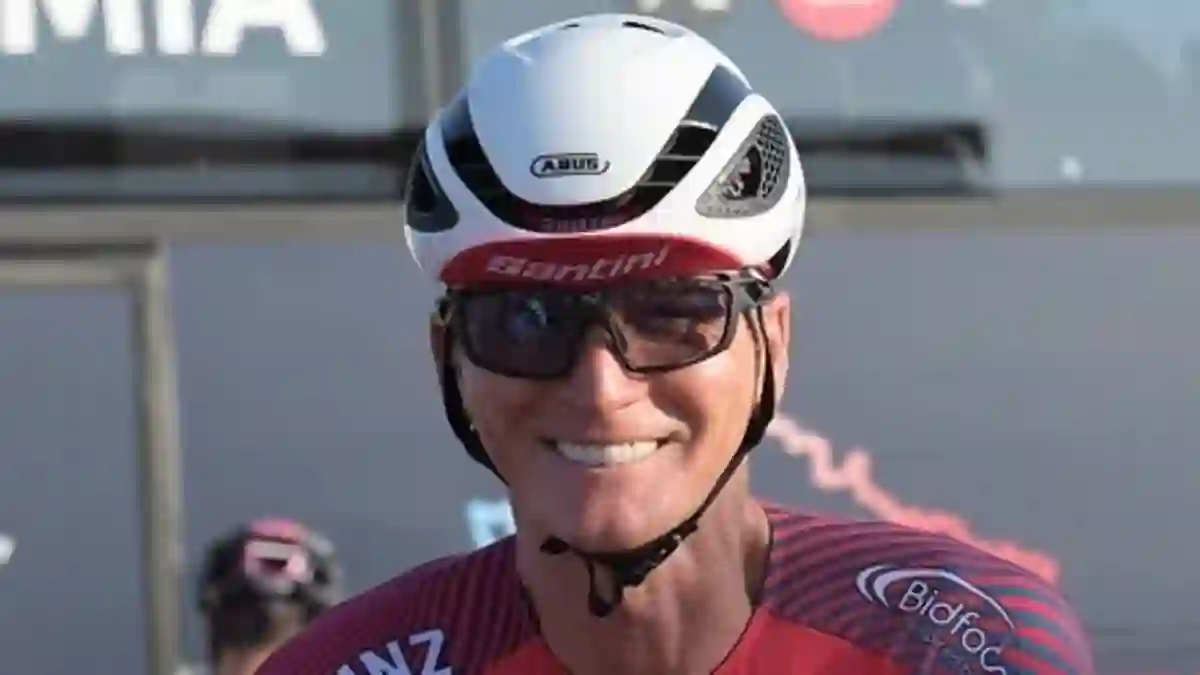Most of us wouldn’t dream of riding a bike up a steep Alpine mountain in our twenties, let alone pushing ourselves through the French Alps just shy of our 61st birthday.
But for Geoff Thomas, a former Crystal Palace captain and England international, that’s exactly how he’s spending his summer—powering through one of the world’s most grueling cycling events, the Tour de France.
What makes his journey even more extraordinary? He’s doing it with two arthritic knees and a past that includes beating cancer.
Taking on the Tour de France—Again
Thomas has been tackling the Tour de France route alongside amateur riders who get a sneak peek at the course before the professionals race it.
This year marks his seventh Tour—and it’s a special one.
Not only is he about to celebrate turning 61, but this ride also marks 20 years since his first Tour, which he rode after a life-saving stem cell transplant following a myeloid leukemia diagnosis.
Against the backdrop of Courchevel, Thomas rides on, seemingly unfazed by the brutal climbs and long miles.
For anyone, it’s an immense challenge. For a cancer survivor with knee problems? Almost unimaginable.
Beating the Odds with a New Treatment
Earlier this year, Thomas wasn’t sure he’d make it back on the bike.
His knees—worn from years of football and plagued with grade four arthritis—were screaming “no.”
But thanks to a game-changing injection called Athrosamid, he found himself training pain-free and ready to return to the saddle.
Now, he’s on the verge of completing the full ride to Paris, covering over 2,000 miles, and feeling as fit as he did during his footballing days.
“I’m about the same weight now as I was back then—around 76kg,” he shared proudly.
Cycling for a Cause That Saved His Life
Geoff’s motivation is clear: raising money for Cure Leukaemia, the charity that supported his recovery and continues to help others fighting blood cancer.
He credits Professor Charlie Craddock, co-founder of the charity, with saving his life—and it’s that personal connection that keeps him going.
“It’s a great cause which delivers hope to patients. It’s what keeps me motivated to do silly things like this,” he said, half-laughing, half-serious.
From Captain to Cyclist: Leading On and Off the Field
Thomas’ leadership journey started long before cycling.
On the football pitch, he captained Crystal Palace through their 1990 FA Cup final against Manchester United and helped the club to a third-place finish in the First Division.
Even today, many still call him “Skip,” the nickname earned during his captaincy.
“Steve Coppell would say I led by example rather than holler—but others might say different!” he said with a grin.
He wasn’t afraid to speak up either—especially to talented teammates like Ian Wright when they weren’t pulling their weight.
“Leadership is about recognising when someone needs a kick up the backside,” he joked.
Watching Palace Rise Again—From the Stands This Time
Thomas was in the crowd this past May when Crystal Palace finally lifted their first major trophy, defeating Manchester City in the FA Cup final.
Watching the club succeed brought back a flood of memories—and thoughts about how to sustain that success.
His advice? Upgrade the stadium.
The Selhurst Park Dilemma
Palace’s legendary Selhurst Park is one of the last old-school stadiums in English football.
While it’s full of character, Thomas believes it’s time for the club to move forward.
“If Palace want to hold on to stars like Eberechi Eze, Marc Guehi, Adam Wharton, and Jean-Philippe Mateta, they’ll need more than passion—they’ll need a stadium that reflects their ambition,” he said.
He understands the financial tightrope the club walks, but sees the long-term benefit.
“It’s a difficult choice, but I think that’s the way you’re going to keep these players in the future,” he said.
UEFA Dispute and the Europa Setback
One thorny issue this summer has been UEFA’s decision to demote Crystal Palace from the Europa League to the Conference League because of a conflict of interest involving minority shareholder John Textor, who also owns Lyon.
Thomas called the whole situation “a mess,” admitting that a bigger club might’ve handled it differently or had more sway in appealing the ruling.
Still, he believes it shouldn’t overshadow the club’s progress: “Whatever the outcome, there will be a time to look forward to entertaining football in Europe.”
Still Pushing the Limits
Geoff Thomas may no longer lead from the football pitch, but his legacy continues in new ways.
From overcoming cancer to pushing through physical setbacks for a good cause, he’s proving that resilience doesn’t have an expiration date.
And come Sunday, as he rolls into Paris, he’ll remind everyone watching that some victories—especially the personal ones—are even more powerful than trophies.
